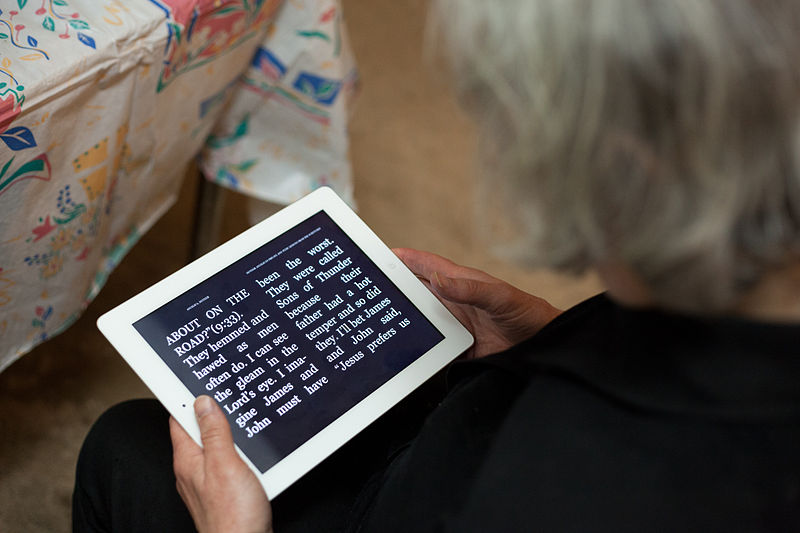Since I was a child, I have always been a total bookworm. My grandfather taught me to read when I was three years old and he really succeeded in instilling in me the pleasure of doing it. While it is true that my reading habits have progressively changed, I still love discovering new worlds and lives throughout the pages of a good book.

https://upload.wikimedia.org/wikipedia/commons/e/ed/Red_House_School_English_class.jpg
Children do not usually choose what they read, unless they feel highly motivated to do so. Instead, they generally read the texts their parents or teachers pick for them. This is quite tricky because, although they may seem interested in what they are reading, sometimes they may feel forced to do it, and that could be counterproductive when it comes to educate engaged readers. However, it is also true that children tend to imitate what they see at home or at school, so it is important to transmit them that reading can be fun and exciting, as well as a daily activity they should integrate in their routine.
http://commons.wikimedia.org/wiki/File:2005_Baimasi_China_58727908.jpg#mediaviewer/File:2005_Baimasi_China_58727908.jpg
As adults, this “forced reading” comes to an end, so we either decide to keep reading for pleasure or simply dismiss it as an ordinary life skill. Those who read because they actually enjoy it are, in my opinion, more open-minded and able to think critically than their non-reader counterparts are. A good reader can plunge into a book for hours and feel like s/he has been under the skin of different people for months or years. It is such an immersive experience that one can remain seated without moving even within the busiest of environments.

https://commons.wikimedia.org/wiki/File:2011_handheld_device_5817790915.jpg#mediaviewer/File:2011_handheld_device_5817790915.jpg
With the recent technological revolution, reading habits change. Not only do we have access to a much wider range of books and texts to be read than before, but also the formats have become incredibly diverse. While some of us still prefer the good old print books and their unmistakable smell and presence, there is no doubt that modern e-books offer a number of advantages, such as mobility or the possibility to save many books in one single device. Needless to say that people with vision problems, such as the elderly, can greatly benefit from this format and continue enjoying an activity that could otherwise be problematic for them.

https://commons.wikimedia.org/wiki/File%3ABundesarchiv_Bild_183-20728-0003%2C_LPG_G%C3%BCsen%2C_Vorsitzende_der_LPG_mit_Kind.jpg
If I had to describe my experience as a Spanish reader, I would use this picture. As I said before, the role of my family was essential because there were many books at home and they spent a lot of time reading, especially my grandfather.

https://commons.wikimedia.org/wiki/File%3A2008_BostonPublicLibrary_2223721594.jpg
Regarding English, I started reading seriously when I was at university and my research activity began: only during this period did I use electronic devices to read. Until then, I had used Spanish texts for pleasure (literature: novels, poems, plays…) and English for research (essays, dissertations…) However, this line has become blurrier during the past ten years and now I read texts of any kind in both languages. I often say that enjoy reading whenever I have the time and the space, but it is true that the busy pace of daily life render them virtually non-existent. Therefore, I force myself to find these times and spaces as a gift, at home, after a hard day of work. For a couple of hours, I can be someone different and I can live a different life. And, of course, always beneath paper sheets.
No comments:
Post a Comment